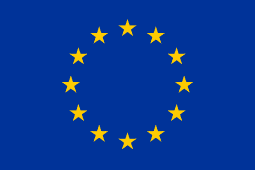What is Environmental Education and Why You Should Care?
The most important topics of discussion today are about the environment, climate change and respect for nature. The fact that we even need to have this conversation is worrisome but as the adage goes – it’s better late than never.
It is our neglect and exploitation of global ecosystems that has brought us to the brink of disaster. This emergency is almost entirely man-made and the signs of environmental collapse have been overlooked for years by us. It’s clear that we’re at a critical point in which we need to stay united in order to preserve our planet. Hence, the time to discuss is over and the time to act is now!

What Are the Biggest Environmental Issues?
Before we move to the details of environmental education and why it matters, let’s first identify the biggest problems our planet is currently facing. In fact the first step of environmental education is to be aware of all dangers our planet and all life on it is facing.
Here are some of the biggest environmental issues:
- Air, Water and Land Pollution
- Global Warming
- Waste Disposal
- Deforestation
- Climate Change
- Overpopulation
- Species Extinction

Any others you think we’ve missed out on? Leave a comment below and you could win a prize!
Environmental education refers to teaching and learning everything there is to know about our planet, its resources, nature, and sustainability. It’s a process of gaining awareness of the issues and learning how to solve them.
This balance of progress and conservation requires a deep understanding of environmental science, economics and social behaviour. Slowly we are realising the need to protect our planet and its delicate ecosystems and how our own existence depends on it.
Also, overcoming large scale challenges such as this requires skills such as critical thinking, problem solving and high emotional quotient. It is almost certain that we will face crises like these in the future where everything will once again be at stake, and we don’t want our response to be as haphazard as it is today.

This is where environmental and sustainability education for kids come into play. Educating kids about the environment is more than just providing statistics, information or promoting nature. It is essential that we help them understand:
- Our natural environment
- The impact of our actions
- Coexisting with nature by foregoing greed and focusing on need
- Becoming more efficient by learning from nature
The Environmental Protection Agency (EPA) defines environmental education as “a process that allows individuals to explore environmental issues, engage in problem-solving, and take action to improve the environment.”

Environmental education does not mean kids are forced to adopt a certain template of respecting or preserving the environment. Neither does it promote or favour a particular viewpoint or course of action. Rather, environmental education teaches individuals how to weigh various sides of an issue through critical thinking and it enhances their own problem-solving and decision-making skills. As a result, kids develop a bond with nature, learn about environmental issues and acquire skills to make informed and responsible decisions.
The components of environmental education are:
- Awareness and sensitivity to the environment and environmental challenges
- Knowledge and understanding of the environment and environmental challenges
- Motivation to improve or maintain environmental quality
- Skills to identify and help resolve environmental challenges
- Participation in activities that lead to the resolution of environmental challenges

In fact, like another cliché goes, prevention is better than cure and we shouldn’t find ourselves in such a predicament ever again. Hence it is important that we learn from the past to prepare better for tomorrow. It is important we prepare the next generation to be more responsible and perhaps this will be our generation’s legacy!
Read here about the benefits of environmental education for kids.






